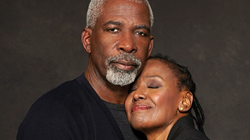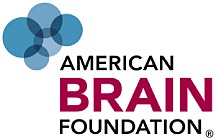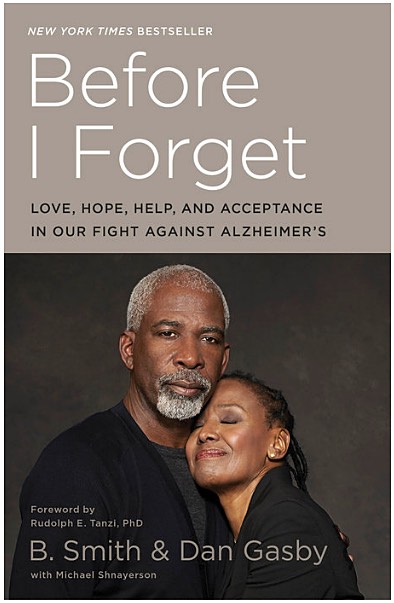Author Dan Gasby, in Interview, Talks of Brain Health and ‘America at a Crossroads’
Written by |

 Dan Gasby, a television producer, author, and Alzheimer’s disease advocate, is teaming up with the nonprofit American Brain Foundation (ABF) to support and advance research into brain and nervous system disorders, especially for African-Americans.
Dan Gasby, a television producer, author, and Alzheimer’s disease advocate, is teaming up with the nonprofit American Brain Foundation (ABF) to support and advance research into brain and nervous system disorders, especially for African-Americans.
He’ll undoubtedly be a strong voice on the ABF’s board of directors, to which he was recently appointed. “I believe that America is at a crossroads,” he said in an interview with Alzheimer’s News Today. “America will be judged by how we take care of those who can’t take care of themselves.”
His focus will be on raising awareness of brain disorders, and particularly of the racial disparities in brain disease diagnosis and care, according to an ABF release.
“Brain health,” Gasby said at an ABF release on his appointment, “is the greatest 21st Century civil rights issue.” These disorders are particularly devastating for African-Americans and Hispanic blacks, he added, who are statistically twice as likely to develop late-onset Alzheimer’s, but far less likely than whites to receive a timely diagnosis and treatment.
“When you think of ‘Make America Great Again’ — when has it ever been ‘great’ for black people?” he said in the interview. “And now we have to double down and demand better health care. We are at least raising awareness. This is not about politics, but about 12-13% of the population is being marginalized in the 21st Century — an ‘age of enlightenment’.”
Gasby understands the cost of brain disease intimately. His wife, Barbara “B.” Smith, was diagnosed at age 64 with early onset Alzheimer’s in 2013, cutting short a lifetime of accomplishments: as a former fashion model, restaurateur, celebrity chef, cookbook author, magazine publisher, actress, and host of the nationally syndicated cable-television show “B. Smith with Style.” (The New York Times, in a 2011 article, called her “a Renaissance woman.”)
“When you are married to a woman who could do everything in a classy way and to watch her slowly devolve … watch her go into confusion, depression and panic,” he said, “I knew her brain was at war with her.”
The couple co-authored a memoir, Before I Forget: Love, Hope, Help, And Acceptance In Our Fight Against Alzheimer’s (Harmony, Nov 01, 2016, ISBN 9780553447156) with Vanity Fair contributing editor Michael Shnayerson, in the hope, as Gasby said, “that no one else has to go through this experience.”
He and his wife joined with the Brain Health Registry (BHR) to launch an online campaign in 2015 to engage more people in clinical trials related to cognitive health. The registry is open to adults and enrollment is free. He also posted a blog with insights and advice for Alzheimer’s caregivers.
 Here is Gasby’s full interview, in Q&A style, with Alzheimer’s News Today:
Here is Gasby’s full interview, in Q&A style, with Alzheimer’s News Today:
Q: You identify brain health as “The Greatest 21st Century Civil Rights Issue” in addition to being a public health issue. Why? Can you please expand a bit about your reasons for declaring brain health a civil rights issue?
A: Quite honestly, civil rights or human rights affect the state of humans in society. With unbelievable income disparity between the super rich, the wealthy and the working poor, the gap is almost insurmountable. You don’t need to be an economic genius to see that poor people have less, get less and will have less of the wealth of the society. What is true wealth? We live in a money society, but I submit to you that the only true wealth is good health. You can have a better brain, heart, liver and better overall health.
From meeting and being around people who are extremely wealthy but have had terrible diseases, everyone, if they had a choice, would choose good health over money. Money doesn’t care who spends it. To live a long and fruitful life in good health is the only true wealth.
Q: In the book you co-wrote with your wife … you talk about her being diagnosed with early onset Alzheimer’s in 2013, and her struggles — and yours as a couple — with the disease. How have these very personal experiences contributed to shaping your opinions on brain health and its treatment?
A: When you are married to a woman who could do everything in a classy way and to watch her slowly devolve into mistakes and missteps that were not characteristic, and watch her go into confusion, depression and panic in her eyes, I knew her brain was at war with her. You understand when you get the diagnosis and you look back, and you and hope that no one else has to go through this experience.
Q: As an African-American, besides front-burner issues of racial disparities in brain disorder diagnosis and treatment, and minority under-representation in brain research, are there other areas of concern or goals you will bring to the AFB board?
A: What I bring is an understanding and appreciation that the board needs to look at the brain in a totally different way. To look at it as more than a medical situation, but as a product and how to market it (like breast cancer, AIDs, etc.) We need to domesticate the discussion so that people feel ‘entertained’ and have an emotional perspective on why brain health matters. The reason why I joined the board is that I saw one thing — that we need to understand that the brain is overlooked and under-appreciated. It allows you to understand everything. There is no gain without a brain.
Q: You observe that brain health is often directly tied to an individual’s socioeconomic status, and that while African-Americans are twice as likely as non-Hispanic whites to develop late-onset Alzheimer’s, they are also less likely to receive a timely diagnosis. Do you see that as particularly pertaining to brain disease, or as part of generally poorer health care services minorities receive in the U.S.?
A: Let’s be honest and above-board, to be black and poor is to be ignored. To be black in general is to always have to fight twice as hard. We are getting less or no diagnosis and no treatment to make a major difference in the short term. I understand it is a part of the compact that has never ever been fully given to us. To put it another way, when you think of “Make America Great Again” — when has it ever been “great” for black people? And now we have to double down and demand better health care. We are at least raising awareness. This is not about politics, but about 12-13% of the population is being marginalized in the 21st Century — an ‘age of enlightenment’.
Q: In a promotional video for your book, you mention that Alzheimer’s is the most costly disease in the U.S. today, but relatively little money is being spent on it. To what would you attribute this disconnect?
A: From what I’ve learned, people are not well informed. By traveling around the country and talking to people, I’ve learned there is too little information. Major media people usually have no idea that Alzheimer’s is a “woman’s disease” and that 2 out of 3 patients are women, or that black people and dark Hispanics (I want to focus on that — black people who speak Spanish) have it twice as much. It comes with the pressure of being black. Because Alzheimer’s has been thought of as the “Gran Torino” disease — you know, the movie with Clint Eastwood, the old white guy? It is considered an end of life disease, not something a person in their 40s, 50s or 60s gets. Those old people don’t vote. People are just at the beginning of understanding that it affects everyone, especially caregivers who are affected even more than the patients. It will affect and impact future generations.
I believe that America is at a crossroads. I believe when we get up at a sporting event or political event and sing the” Star Spangled Banner” — about the land of the free and home of the brave — we need to remember that if you don’t have mental faculties you can’t be free. We must be brave people and take care of the people who went before us. America will be judged by how we take care of those who can’t take care of themselves.
My goal is to shock doctors — provide a sound bite that sticks in their heads, and to be a lightning rod to create awareness.
Sources:
American Brain Foundation (ABF)
Dan Gasby





